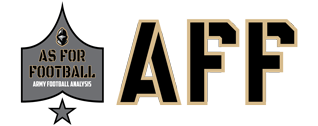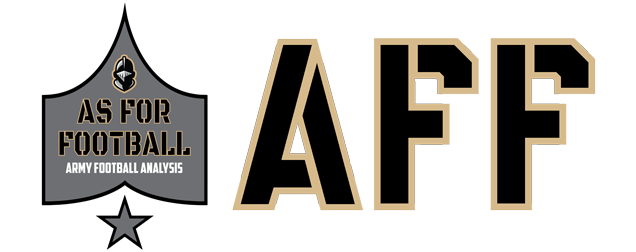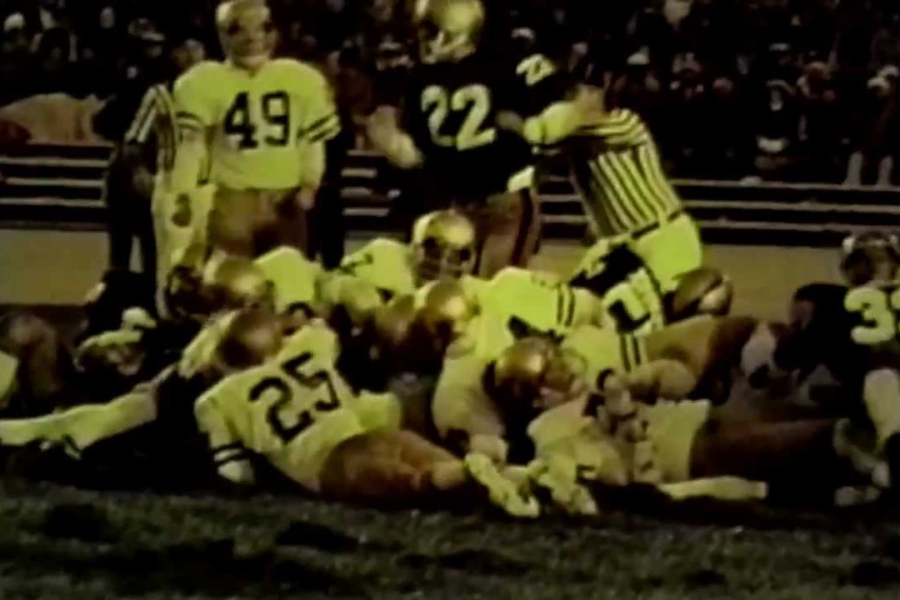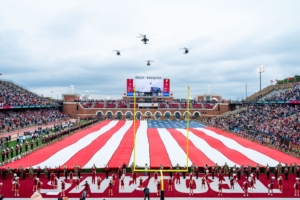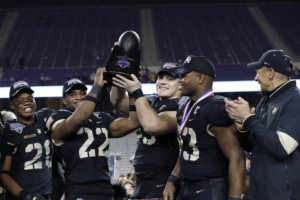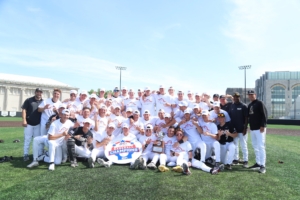The comparisons of this year’s Army Team to the 1996 squad are natural. Both teams won over ten games and ended esteemed seasons in Shreveport’s Independence Bowl. The Black Knight’s chance to avenge their heartbreaking loss to Auburn in the 1996 Independence Bowl is one of the prevailing storylines leading up to this year’s game. However, many Army fans do not know that nearly two decades before that 1996 team, another Black Knights’ squad almost became West Point’s first Independence Bowl team.
The 1970s were purgatory for Army football. An 0-10 season accentuated by an embarrassing 51-0 loss to Navy in 1973 halted the momentum built in the 1960s and early 1970s. From 1973-1983, Army notched one winning season. However, that winning season is one of the program’s more underrated.

Believe it or not, Army had one of the country’s best passers in the mid-1970s. QB Leamon Hall was the point man for Head Coach Homer Smith’s pass-happy offense from 1975-1977. Hall threw for 2174 yards in 1976, a total that’s still good for 2nd all-time in Army’s single-season rankings. He also entered his senior year as Army’s all-time leading passer. The national media regarded Leamon Hall so highly that Sports Illustrated wrote an article showcasing him in 1976, even with Army mired in a 5-6 season.
1977 was Hall and Army’s breakout year. Army entered their yearly clash with Navy with a 6-4 record with wins over UMass, VMI, Villanova, Lafayette, Holy Cross, and Air Force. The Cadets’ only losses came to Boston College, defending Big Eight champion Colorado, Notre Dame, and defending national champion Pitt, who played in the Gator Bowl in 1977. Leamon Hall threw for over 1900 yards, while tight end Clennie Brundidge had over 800 receiving yards to lead one of the East’s top offenses.
Although not the greatest season in West Point’s history, it was a noteworthy return to respect for the struggling program. Thus, a young bowl seeking credibility courted Army.
The Independence Bowl was in its second year of operation. The bowl accommodated the Southland Conference champion in the aftermath of Arkansas State’s 1975 11-0 season that ended without a bowl. Unfortunately, the Independence Bowl struggled to find an opposing team in its first year. Teams quietly exited the running, while Rutgers bluntly declined an invitation from the Independence Bowl despite it being their first bowl appearance. The Independence Bowl ultimately settled for 7-3-1 Tulsa, champion of the five-team Missouri Valley Conference. A solid Army team presented an opportunity for the bowl.
A November 18, 1977 report from the Hattiesburg American documented Army made “indirect contact” with the bowl. The Independence Bowl also had 10-0 Colgate, 8-3 East Carolina, and 6-3-1 Louisville in its pool of prospective opponents for the Southland champion after their first choice Maryland opted for the Hall of Fame Classic in Birmingham.
Ultimately, this trip to Shreveport never came to fruition. Army beat Navy in its final game but did not attend its first bowl until 1984, when they played in the Cherry Bowl. The Independence instead opted for Army’s future Conference USA and AAC cohort, East Carolina. Still, this Independence Bowl scenario leaves room for fun thought experiments involving the 1977 team.
First, would an Independence Bowl appearance strengthen the legacy of the 1977 team? The 1984 team was Army’s first bowl team, but would they be more of an afterthought if Army made its bowl debut nearly a decade ago?
Second and more importantly, would Army fans remember Leamon Hall more? Since Head Coach Jim Young reversed the course of Army football history by switching to the Wishbone in 1984, it is hard to imagine any elite passers coming from Army. Consequently, Leamon Hall is a forgotten star in Army football history. Hall’s forgotten status likely led to the Army Athletic Association not inducting Leamon Hall into the Army Athletics Hall of Fame until 2020, a decade after his top target, Clennie Brundidge, received induction. A trip to the 1977 Independence Bowl likely expedites Hall’s induction.
Nineteen years after Army’s triumphant 1977 campaign, the Black Knights finally made it to Shreveport to cap a 10-1 regular season. This year’s Black Knights continues an intriguing history of close calls and near-participation in the Independence Bowl. This month’s Independence Bowl is another step in a nearly five-decade odyssey to the Independence Bowl.
*For more on the 1977 Army Team, read Operation Black September by Mike Belter, the definitive retrospective on the 1977 Cadets
**To see the original Sports Illustrated spread on Leamon Hall click here
